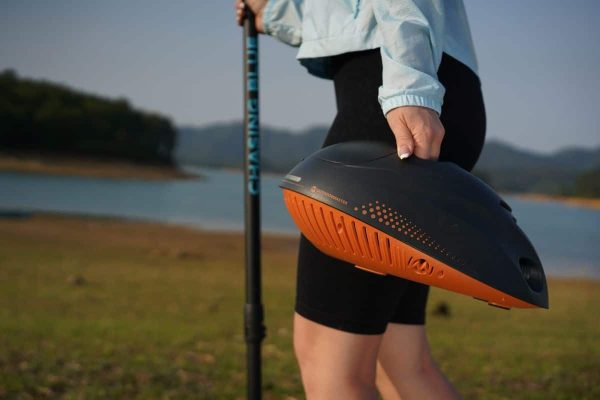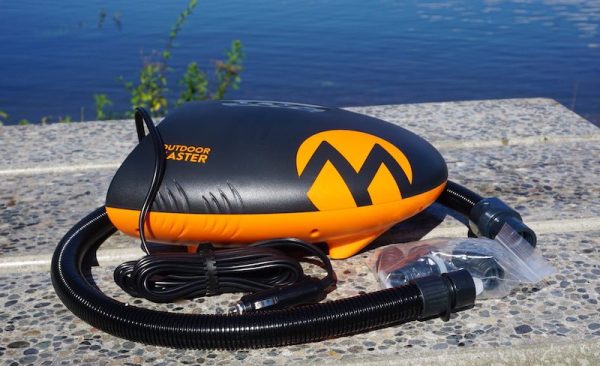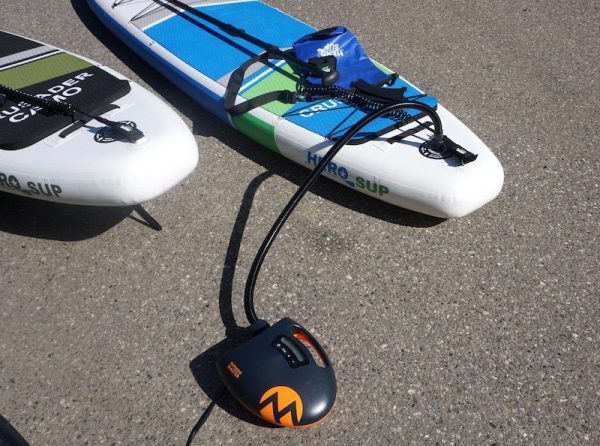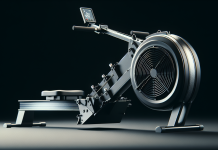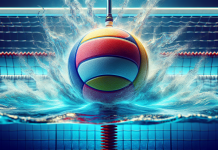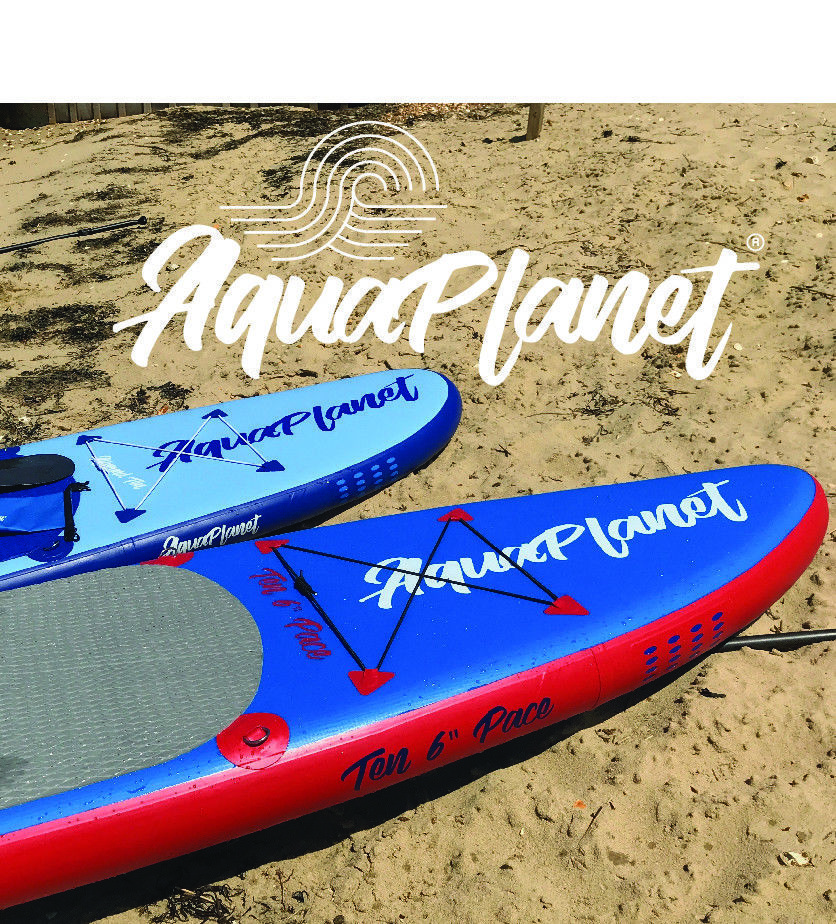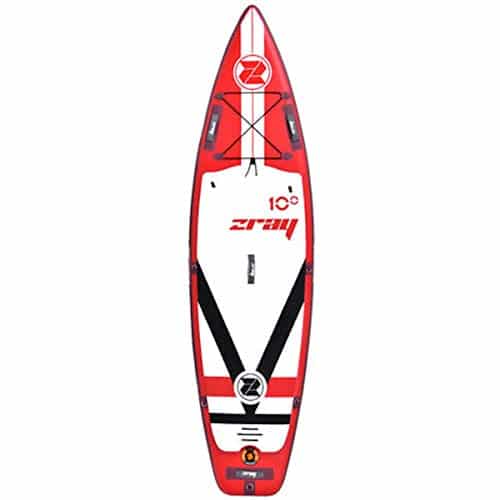Have you ever wondered why electric water pumps for stand-up paddleboards (SUP) seem to fail more often than other types of pumps? Well, in this article, we will shed some light on this issue and provide you with some insights into the common causes of electric water pump failures in SUPs. From overheating to electrical malfunctions, we will explore the potential culprits behind these failures and offer some tips on how to prevent them. So, if you’re a passionate SUP enthusiast or simply curious about the inner workings of these pumps, keep on reading!
Common Causes of Electric Water Pump Failure
Electric water pumps are an essential component of many systems, including vehicles, industrial machinery, and home appliances. However, just like any other mechanical device, they can experience issues and fail over time. Understanding the common causes of electric water pump failure is crucial for maintaining their optimal performance and preventing costly repairs or replacements.
This image is property of vachansports.com.
Lack of Maintenance
One of the primary reasons for electric water pump failure is the lack of proper maintenance. Neglecting regular maintenance tasks can lead to the accumulation of debris, sediment, and other contaminants, obstructing the pump’s operation and ultimately causing it to fail prematurely.
Infrequent Cleaning and Flushing
Cleaning and flushing the electric water pump on a regular basis is crucial to prevent the build-up of dirt and sediment. Over time, debris can accumulate within the pump housing, affecting its efficiency and compromising its ability to circulate water effectively. By regularly cleaning and flushing the pump, these obstructions can be removed, ensuring its smooth operation.
Failure to Check for Leaks and Blockages
Regularly inspecting the pump for leaks and blockages is vital to identify potential issues early on. Water leaks can not only prevent the pump from operating effectively but also cause damage to surrounding components. Additionally, blockages in the intake or discharge pipes can obstruct water flow, resulting in excessive strain on the pump and potential overheating.
Neglected Lubrication
Proper lubrication is essential for the smooth functioning of the pump’s moving parts, such as bearings and seals. Failure to lubricate these components regularly can lead to increased friction and wear, causing them to deteriorate and eventually fail. Regularly checking and lubricating these areas is crucial for maintaining the longevity and efficiency of the electric water pump.
Overheating
Overheating is another common cause of electric water pump failure, often resulting from various underlying factors that affect the pump’s cooling system. When a pump overheats, its internal components can become damaged, leading to reduced performance and eventual failure.
Insufficient Water Flow
In cases where the water flow is insufficient, the electric water pump has to work harder to circulate the available water. This increased strain can cause the pump to overheat, leading to premature failure. Insufficient water flow can be caused by clogged pipes, a malfunctioning impeller, or a restricted intake.
Blocked or Damaged Cooling System
The cooling system is vital for regulating the temperature of the electric water pump. If the cooling system becomes blocked or damaged, the pump may not receive adequate cooling, resulting in overheating. Blockages can occur due to debris, sediment, or mineral deposits, while damage can be caused by corrosion or physical impacts.
Faulty Thermostat
The thermostat is responsible for regulating the flow of coolant within the cooling system. A faulty thermostat can cause the coolant to either bypass the pump or restrict its flow, leading to inadequate cooling and subsequent overheating. Regular inspection and replacement of the thermostat are crucial for avoiding such issues.
This image is property of cdn11.bigcommerce.com.
Electrical Issues
Electric water pumps rely on a well-functioning electrical system to power their operation. Any issues with the electrical components can disrupt the pump’s performance and ultimately lead to failure.
Faulty Wiring or Connections
Improper wiring or faulty connections can cause irregular electrical currents to flow through the pump. This can result in additional strain on the motor, reducing its efficiency and potentially leading to premature failure. Regular inspection and maintenance of the electrical wiring and connections are essential for preventing such issues.
Misalignment or Damage to Electrical Components
Misalignment or damage to electrical components, such as the motor or capacitor, can also contribute to electric water pump failure. These components play a crucial role in the pump’s operation, and any misalignment or damage can disrupt the electrical flow, leading to reduced performance or complete failure.
Power Surge or Voltage Fluctuations
Power surges or voltage fluctuations can occur due to external factors such as lightning strikes or sudden changes in power supply. These electrical irregularities can overload the motor or other electrical components of the pump, causing them to fail prematurely. Protecting the pump from power surges through the use of surge protectors or voltage stabilizers can significantly prolong its lifespan.
This image is property of outdoormaster.com.
Mechanical Damage
Mechanical damage to the electric water pump can occur due to various reasons, including wear and tear, impact, or incorrect operation. Such damage can significantly impact the pump’s performance and lead to complete failure if not addressed promptly.
Worn Bearings or Seals
Bearings and seals are critical components of the pump that allow for smooth and efficient rotation of the shaft. Over time, these components can wear out due to heavy usage or inadequate lubrication. Worn bearings or seals can cause increased friction, noise, and vibration, ultimately leading to the pump’s failure.
Broken or Bending Impeller
The impeller is responsible for creating water flow within the pump. If the impeller becomes broken, bent, or damaged, it will not be able to circulate water effectively. This can result in decreased pump performance, increased strain on the motor, and eventual failure.
Misalignment of Motor or Pump Shaft
Proper alignment between the motor and pump shaft is crucial for optimal performance and longevity. Misalignment can occur due to vibrations, improper installation, or wear and tear over time. A misaligned shaft can lead to increased friction, excessive heat generation, and eventual failure of the electric water pump.
This image is property of isupworld.com.
Corrosion
Corrosion is a common problem for electric water pumps, particularly in applications where the pump comes into contact with water or corrosive chemicals. Corrosion can deteriorate the pump’s components, leading to leaks, decreased efficiency, and eventual failure.
Chemical or Electrolytic Corrosion
In certain applications where chemicals or electrolytes are present, the electric water pump can be susceptible to chemical or electrolytic corrosion. These corrosive substances can degrade the pump’s materials, including the impeller, housing, and seals, leading to operational issues and failure.
Galvanic Corrosion
Galvanic corrosion occurs when two dissimilar metals come into contact with an electrolyte, such as water. This can happen when different metals are used within the pump’s components or in the connection between the pump and other parts of the system. Galvanic corrosion can compromise the integrity of the pump and contribute to its failure.
Corrosion due to Environmental Factors
Exposure to environmental factors, such as moisture, humidity, or high temperatures, can also contribute to corrosion in electric water pumps. Over time, these factors can cause rust, oxidation, or degradation of the pump’s materials, leading to decreased performance and eventual failure.
Understanding the common causes of electric water pump failure is essential for both preventative maintenance and troubleshooting. By implementing regular maintenance tasks, addressing issues promptly, and ensuring the correct installation and operation of electric water pumps, their lifespan can be prolonged, and the risk of failure significantly reduced. Proper maintenance and care will help to ensure the smooth functioning of these important devices, allowing us to enjoy their benefits for years to come.
This image is property of isupworld.com.




